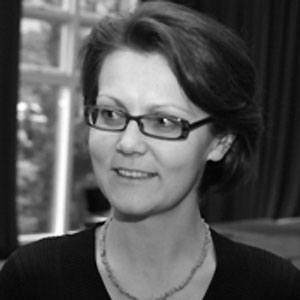Quick Facts

Elena Korosteleva Biography
| Name | Elena Korosteleva |
| Birthday | Jan 24 |
| Birth Year | 1972 |
| Place Of Birth | Belarus |
| Birth Country | Belarus |
| Birth Sign | Aquarius |
Elena Korosteleva is one of the most popular and richest Teacher who was born on January 24, 1972 in Belarus, Belarus. Expert on Belarusian politics who served as Director of the Global Europe Centre at Aberystwyth University.
She became an expert on the politics of Belarus, a country which elected Alexander Lukashenko as its President in 1994.
The European Neighbourhood Policy (ENP) of 2004, and the subsequent Eastern Partnership (EaP) of 2009 heralded a new form of relations with the EU’s neighbours – partnership based on joint ownership and shared values – which would complement if not entirely replace the EU’s traditional governance framework used for enlargement. These initiatives, however, have received a mixed response from the EU’s eastern neighbours. It shows how the key elements of “partnership” have been forged mainly by the EU, rather than jointly, and examines the idea and application of external governance, and how this has been over-prescriptive and confusing.
Korosteleva with Stephen White and John Lowenhardt (eds) continue the analysis of Belarusian politics in Post Communist Belarus (2005). They note that Belarus is one of the least studied European states to emerge from the collapse of the Soviet Union in 1991. In fact, few Western specialists paid much attention to its affairs during the Soviet era. Nevertheless, Belarus constitutes an important and sensitive border region between Russia and the western part of the continent. In Postcommunist Belarus, a stellar group of contributors examines the issues and the search for identity that Belarus has confronted in the period leading up to and following independence. The country is run in an authoritarian fashion by President Alexander Lukashenko and many observers, both inside and outside Belarus, would use the term “dictatorship” to describe his rule. Belarusian authorities prefer to emphasise the strong support of the people for the president and his cautious approach to economic reform. It seems unlikely that the country can hold out permanently against the wider pressures of democratisation and economic reform that are transforming its neighbours. The country’s situation offers political scientists many facets for comparison with established models. Belarus is grappling with challenges that are conceptual and psychological as much as they are political, economic, and social.
Her daughter, Alina Malich, became an artist.
Elena Korosteleva Net Worth
| Net Worth | $5 Million |
| Source Of Income | Teacher |
| House | Living in own house. |
Elena Korosteleva is one of the richest Teacher from Belarus. According to our analysis, Wikipedia, Forbes & Business Insider, Elena Korosteleva 's net worth $5 Million. (Last Update: December 11, 2023)
She earned doctoral degrees from the University of Bath and from the Belarusian State University at Minsk.
She was the 2009 recipient of the Higher Education Academy’s BISA-CSAP Teaching Award for Excellence in Teaching International Studies.
Korosteleva with Colin Lawson and Rosalind Marsh (eds) argue in Contemporary Belarus between Democracy and Dictatorship (2003) that Belarus is unique among the states of the former Soviet bloc, in that after a decade of transition’, the country remains stalled’ and backward-oriented. Political and economic changes are characterised by half-measures, and recently a new suppression of dissent has been introduced; the country balances between the prospect of democracy and a retreat to authoritarianism. These developments contrast starkly with the many democratic changes in neighbouring states and suggest a possible alternative path for future development in Eastern Europe. Korosteleva provides a thorough overview of current developments in Belarus. It looks at historical, political, economic and social changes, and at international relations, especially relations with Russia and the European Union, considering all these factors both in their domestic and international contexts and defines the type of democracy, if any, which exists in Belarus, exploring the prospects for further democratisation.
Height, Weight & Body Measurements
Elena Korosteleva height Not available right now. Elena weight Not Known & body measurements will update soon.
Who is Elena Korosteleva Dating?
According to our records, Elena Korosteleva is possibily single & has not been previously engaged. As of December 1, 2023, Elena Korosteleva’s is not dating anyone.
Relationships Record : We have no records of past relationships for Elena Korosteleva. You may help us to build the dating records for Elena Korosteleva!
First, from the examination of official documents, elite interviews and public surveys across the EU border, it has transpired that conceptually the EU has limited uniform awareness of what it is trying to promote in its eastern neighbourhood under the aegis of ‘shared values’, ‘collective norms’ and ‘joint ownership’. Not only is there a discrepancy in the EU’s own rhetoric – juxtaposing its ‘universalist’ values of democracy, human rights and the rule of law (Europeanisation), with its ‘realist’ security ‘needs’ to protect its borders and safeguard its own citizenry (securitisation); there is also an evident clash of the EU’s vision of good governance with what the neighbours perceive to be such, stemming from their own unique historical experiences and cultural traditions.
Facts & Trivia
Elena Ranked on the list of most popular Teacher. Also ranked in the elit list of famous people born in Belarus. Elena Korosteleva celebrates birthday on January 24 of every year.
The key findings suggest public support of the EU and its policies has slightly eroded, which is reflected in the respondents’ perceptions, levels of interest, attitudes and behavioural preferences. The EU remains attractive for Moldova – but is not a default option yet. It requires continuous reinforcement: the fear of uncertainty and negative anticipations of change currently prevail in public perceptions of the EU, causing a loss of trust, and reciprocity in EU-Moldova relations. The Eurasian Customs Union (ECU), on the contrary, tends to be seen as a model which may potentially offer a quick- fix solution for stability, prosperity and security